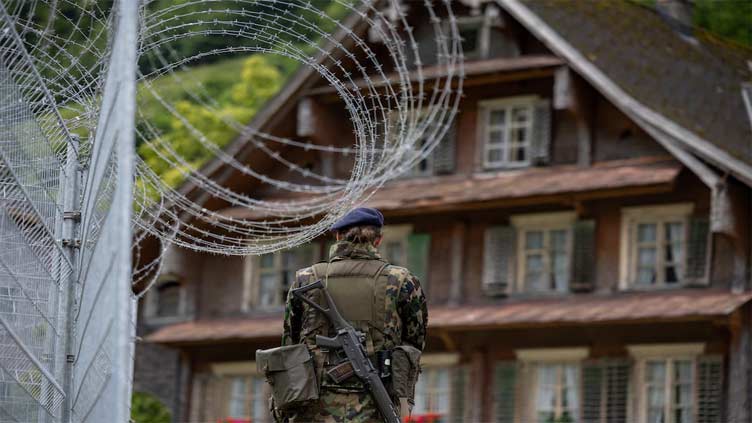Switzerland flags cyberattacks, disinformation ahead of Ukraine summit

World
Russia has dismissed the summit as a waste of time
BERN (Reuters) - Switzerland has registered an increase in cyberattacks and disinformation in the run-up to a summit this weekend that aims to create a pathway for peace in Ukraine, the government said on Monday.
Ninety states and organisations have registered to take part in the talks due to be held at a resort near the central city of Lucerne from June 15-16, roughly half of them from South America, Asia, Africa and the Middle East, Switzerland said.
Russia has not been invited, but the Swiss government said the talks aimed to "jointly define a roadmap" on how to involve both it and Ukraine in a future peace process.
Swiss President Viola Amherd told a press conference cyber attacks had increased in recent weeks and was asked how her government was addressing personal attacks against her in Russian media that have been publicised in Switzerland.
"We haven't summoned the ambassador," she said. "That's how I wanted it, because the disinformation campaign is so extreme that one can see that little of it reflects reality."
Foreign Minister Ignazio Cassis said there was a clear "interest" in disrupting the talks, but avoided saying who was behind the attacks when asked if Russia was involved.
Switzerland agreed to host the summit at the behest of Ukrainian President Volodymyr Zelenskiy, and has tried to drum up support for it among countries that have better relations with Moscow than leading Western powers.

Russia has dismissed the summit as a waste of time. It was not invited to participate, Switzerland says, because it signalled it had no interest in attending. Cassis reiterated though, that Russia must be part of the peace process.
Its absence has encouraged powerful allies of Moscow such as China to say there is no point in peace talks unless both Russia and Ukraine take part. That has dampened expectations for any kind of major breakthrough in Switzerland.
The summit at the Buergenstock resort is due to discuss areas of international concern, such as the need for nuclear and food security, freedom of navigation as well as humanitarian issues, such as prisoners of war exchanges, Cassis said.
Turkey and India will participate, Swiss officials said, though it was not clear at what level. Whether Brazil and South Africa would take part remained unclear.
Roughly half the countries taking part will be represented by heads of state or government, Switzerland said.
The summit is due to conclude with a final declaration, "ideally" one backed unanimously, Cassis said. It also aims to set out what the next step would be in the peace process.
When asked who might succeed Switzerland in the next phase, Cassis said he could not give details, but noted efforts were underway for something "outside the western part of the world".
Doing so could boost inclusion of the "Global South and Arabian countries" in the process, he said.


